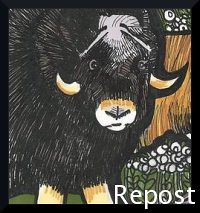 Photo: mindrec
Photo: mindrec We established that the giant and red panda co-inhabit the same habitat, but exploit very specific parts of that main habitat, different microhabitats. Giants stick to the low lands, feeding in sparse forest, while the reds alight the long branches of rhododenrons, stripping leaves from branches.
We established that the giant and red panda co-inhabit the same habitat, but exploit very specific parts of that main habitat, different microhabitats. Giants stick to the low lands, feeding in sparse forest, while the reds alight the long branches of rhododenrons, stripping leaves from branches.
They are said to have a sympatric relationship, meaning that both pandas became separate species (speciation) while existing in the same area. Allopatry is the opposite process; it describes speciation by environmental isolation.
When ecologists and evolutionary biologists make references to sympatry or allopatry, they are talking not only about the present relationship between two organisms, but also about the coevolution of each in that habitat.
The need for divergence is especially strong in sympatry, since there are significantly fewer obvious pressures on the organism to change. In the case of the pandas, it may have just come down to avoiding direct competition for their main food, bamboo, which makes up over 98% of both animals' diets.